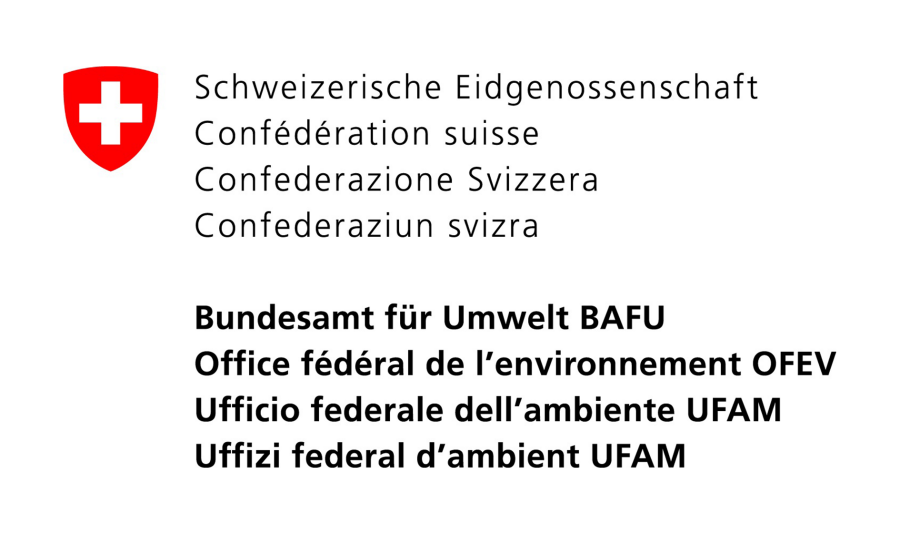Swiss Environmental Panel

Panel respondents: In order to participate in the survey, please proceed to the questionnaire page.
News
Interview: with Sarah Gomm on the reasons for decreasing climate protest attendance (Swissinfo): external page Taking the pulse: are the Swiss losing interest in climate change fight?
Article: Rudolph, L., Quoss, F. & Bernauer, T. (2025). external page How Relevant is NIMBYism to Citizens’ Support for the Large-Scale Deployment of Public Goods? Experimental Evidence from 5G Antenna Placement in Switzerland
Report:
- SEP Wave 12 Results Report on Public Opinion on CO2 Removal in Swiss Climate Policy
- SEP Wave 12 Full Report (only available in German)
Weitere Informationen auf Deutsch finden Sie unter Schweizer Umweltpanel.
Goals
How does the Swiss population perceive environmental quality and trends therein? Which opinions and preferences does it have on environment-related issues and policy, for example concerning climate or mobility policy? How do these preferences change over time?
Against this backdrop, the Swiss Environmental Panel explores public opinion in Switzerland in relation to environmental preferences and behavior, changes therein, and linkages to preferences and behavior in other policy realms.
Several thousand randomly selected individuals take part in the Swiss Environmental Panel and answer on these and related questions. The Swiss Environmental Panel was conceptualized by ETH Zurich and is, since September 2018, conducted by ETH Zurich with a mandate of and in cooperation with the Swiss Federal Environmental Agency (Bundesamt für Umwelt, BAFU).
Contact: Sarah Gomm, Clara Brügge, Thomas Bernauer
The video is also available in external page French and external page Italian.
Public opinion is highly relevant for the actions of politicians and decision-makers. It gives information on support and interests of the public and motivates people on all levels to get involved (EUA, Eurobarometer). In the realm of environmental public opinion such data is rarely taken into account in political planning and reporting. A systematic documentation of such data does not exist, and, for Switzerland, the availability of public opinion data is scattered and fragmented, lacking continuity. Based on the central elements of previous public opinion surveys (“Umweltsurvey”, “Univox Umwelt”, “BFS Omnibus Umwelt”), it is therefore the goal of the Swiss Environmental Panel to provide a continuous and flexible survey instrument, adhering on the one hand to high scientific standards and being on the other hand practice-oriented. With the data generated, this project aims to provide a valuable information base for scientific purposes, political decision making, the public administration and the general public.
The Swiss Environmental Panel is based on a representative sample of the Swiss resident population from 15 years of age, based on the harmonized population registry of the Swiss Federal Statistical Agency (Bundesamtes für Statistik, BFS/SRPH). This includes the resident population with non-Swiss nationality. Respondents were invited with a letter in the main language of their municipality. The survey could be taken on paper or electronically in Swiss German, French, Italian or English. In order to assess changes over time, some questions were adopted from similar surveys in 1994 and 2007 (“Schweizer Umweltsurvey” by Andreas Diekmann and colleagues). The project is a panel-study, i.e. the same persons are surveyed repeatedly. The project conducts two survey rounds per year.
Wave 1: Baseline Survey
- Survey period: Spring 2018
- Results report wave 1 (German)
- Download Results report wave 1 (PDF, 1.1 MB) (French)
- Download Results report wave 1 (PDF, 1.3 MB) (Italian)
- Data wave 1: Data on external page SWISSUbase
Wave 2: Core Topic - Climate
- Survey period: Autumn 2018
- Results report wave 2 (German)
- Short summary wave 2: Download German (PDF, 784 KB) and Download French (PDF, 882 KB)
- Data wave 2: Data on external page SWISSUbase
Wave 3: Core Topic - Food Waste
- Survey period: Summer 2019
- Results report wave 3 (German)
- Short summary wave 3: Download German (PDF, 583 KB) and Download French (PDF, 601 KB)
- Data wave 3: Data on external page SWISSUbase
Wave 4: Baseline Survey
- Survey period: Fall/Winter 2019
- Results report wave 4 (German)
- Data wave 4: Data on external page SWISSUbase
Wave 5: Core Topic - 5G
- Survey period: Spring/Summer 2020
- Results report wave 5 (German)
- Data wave 5: Data on external page SWISSUbase
Wave 6: Core Topic - Environment and Health
- Survey period: Fall/ Winter 2020
- Results report wave 6 (German)
- Data wave 6: Data on external page SWISSUbase
Wave 7: Basline Survey
- Survey period: Spring/Summer 2021
- Results report wave 7 (German)
- Data expected to be available 2025
Wave 8: Core Topic - Circular Economy
- Survey period: Fall/Winter 2021
- Results report wave 8 (German)
- Data expected to be available 2025
Wave 9: Core Topic - Trust
- Survey period: Spring/Summer 2022
- external page Results report wave 9 (German)
- Data expected to be available 2025
Wave 10: Baseline Survey
- Survey period: Fall/Winter 2022
- Results report wave 10 (German)
- Full Report wave 10 baseline survey (German)
- Data expected to be available 2025
Wave 11: Core Topic – Noise Pollution
- Survey period: Spring/Summer 2023
- external page Results report wave 11 (German)
- Data expected to be available 2025
Wave 12: Core Topic – Food Waste
- Survey period: Fall/Winter 2023
- Results report wave 12
- Full Report wave 12 baseline survey (German)
- Data expected to be available 2025
Wave 13: Baseline Survey
- Survey period: Spring/Summer 2024
Wave 14: Core Topic – Drought
- Survey period: Fall/Winter 2024
Wave 15: PFAS
- Survey period: Spring/Summer 2025
Wave 16: Baseline Survey
- Survey period: Fall/Winter 2025
Data for the Swiss Environmental Panel is available to the public in the external page SWISSUbase.
Zitation: Franziska Quoß, Lukas Rudolph, Sarah Gomm, Stefan Wehrli, and Thomas Bernauer. 2021. Swiss Environmental Panel Study 2018-2021, Wave 1-6, Cumulative Data [Dataset]. ETH Zurich - Institute of Science, Technology and Policy. Distributed by FORS, Lausanne, 2021. DOI: https://doi.org/10.23662/FORS-DS-1220-2call_made external page https://doi.org/10.23662/FORS-DS-1220-2
Principal Investigator
Project Coordinator(s)
Lab Coordinator(s)
Project Team
- Leonie Barnsteiner
- Victoria Beaupoil Montilla
- Amélia Graber
Former Employees
- Dr. Lukas Rudolph
- Dr. Franziska Quoß
- Gian-Luca Kaufmann
- Jan Linder
- Patricia Maissen
- Hanna Pahls
- Patricia Wäger
- Lukas Walker
Press
- Interview with Sarah Gomm on the reasons for decreasing climate protest attendance (Swissinfo): external page Taking the pulse: are theSwiss losing interest in climate change fight?
- Interview with Sarah Gomm on the CO2-footprint within the Swiss population (Le Temps): external page En graphiques – En Suisse, les personnes qui contribuent le plus au réchauffement ne sont pas celles que vous pensez (in French).
- Interview with Sarah Gomm and Clara Brügge about the 8th wave (Circular Economy): external page Kreislaufwirtschaft? Ja, aber bitte nicht so ernst (in German)
- Short empirical analysis on potential Download urban-rural divide in Swiss environmental politics (PDF, 2.2 MB) (in German)
- Interview 'The majority wants to reduce foodwaste' with Lukas Fesenfeld on external page Radio SRF 4 News
- Interview 'City versus country - The place of residence has little to do with how environmentally conscious we are' with Sarah Gomm and Thomas Bernauer on external page SRF Wissen
- Article in Migros Magazine on the results of the 5th survey wave: 'external page The big fight for 5G-Netz' (page 48 ff.)
- Article on Heise Online about the results of the 5th survey wave: 'external page Switzerland: Divided opinion of the population about 5G network expansion'
Publications
- Rudolph, L., Quoss, F. & Bernauer, T. (2025). external page How Relevant is NIMBYism to Citizens’ Support for the Large-Scale Deployment of Public Goods? Experimental Evidence from 5G Antenna Placement in Switzerland. Political Behavior.
- Quoss, F. & Rudolph, L. (2025). external page The hidden universe of operationalizing natural experiments: Navigating extreme weather. The Journal of Politics.
- Quoss, F. (2025). external page The link between objective measures and subjective perceptions of extreme weather. Climatic Change, Volume 178, 34.
- Levis, A. & Smith, E. K. (2024). external page Trust in Implementing Institutions, Ecological Behavior and Decentralized Environmental Governance: The Case of Switzerland. Swiss Political Science Review, 30, 357–384.
- Brügge, C., Gomm, S., & Bernauer, T. (2024). external page Circular products resonate well with diverse consumers: Evidence from a choice experiment in Switzerland. Journal of Cleaner Production, Volume 479, 143968.
- Gomm, S., Huber, R. A., Kolcava, D., Smith, E. K., & Bernauer, T. (2024). external page Procedural inclusiveness can mitigate trust challenges in environmental policymaking. Journal of European Public Policy, 1–27.
- Quoß, F., Rudolph, L. & Däubler, D. (2024). external page How does information affect vote choice in open-list PR systems? Evidence from a survey experiment mimicking real-world elections in Switzerland. Electoral Studies, Volume 91, 102837.
- Rudolph, L. & Gomm, S. (2024). external page How does an economic shock affect environmental attitudes, preferences and issue importance? Evidence from Switzerland. Climatic Change, 177, 63.
- Presberger, D., Quoß, F., Rudolph, L. & Bernauer, T. (2023). external page Factual information on the environmental impacts of consumption abroad increases citizens' problem awareness, but not support for mitigating such impacts. Environmental Science & Policy, 146, 101-112.
- Gomm, S., & Bernauer, T. (2023). external page Are actual and perceived environmental conditions associated with variation in mental health?. Environmental Research, 223, 115398.
- Rudolph, L., Quoß, F., Buchs, R. & Bernauer, T. (2022). external page Environmental Concern Leads to Trade Skepticism on the Political Left and Right, International Studies Quarterly, 66, 4.
- Swiss Federal Office of the Environment (2022). external page Belastung hängt von subjektiv wahrgenommenen Umweltstressoren ab.
- Fesenfeld, L., Rudolph, L. & Bernauer, T. (2022). external page Policy framing, design and feedback can increase public support for costly food waste regulation. Nat Food 3, 227–235.
- Däubler, T., Quoß, F., & Rudolph, L. (2021). Do citizens use sociodemographic characteristics as cues to infer candidate issue positions? Swiss Political Science Review, 00, 1-23. external page https://doi.org/10.1111/spsr.12493
Contact
E-mail:
Tel. +41 44 505 13 55


